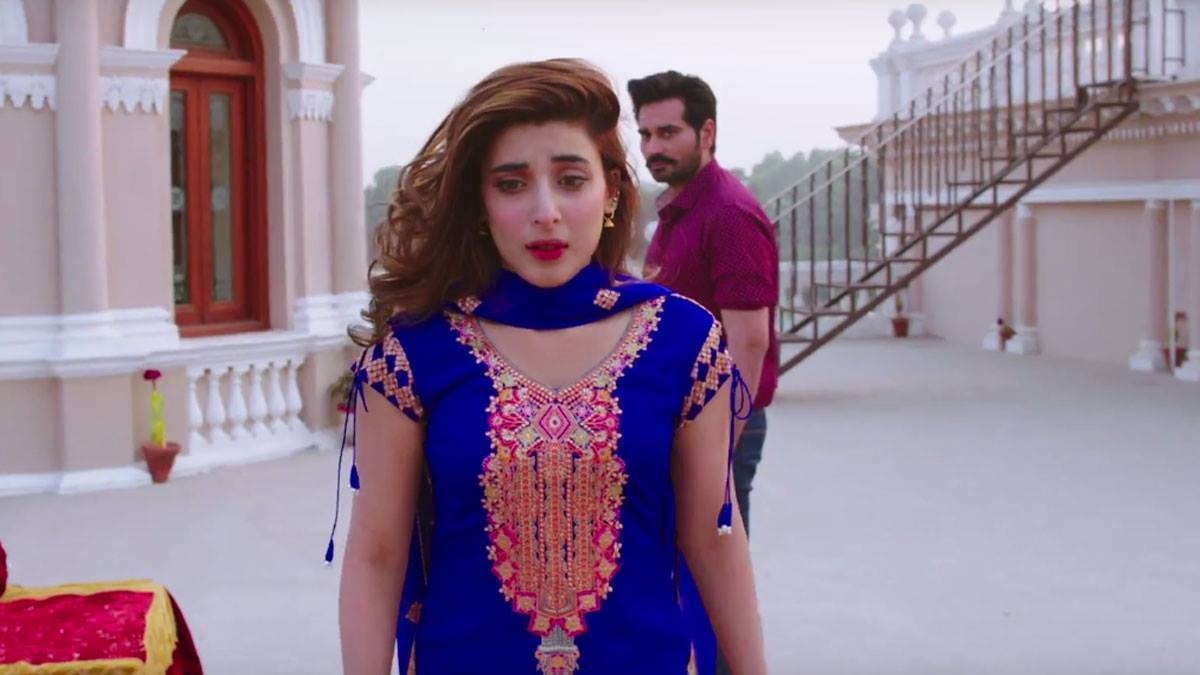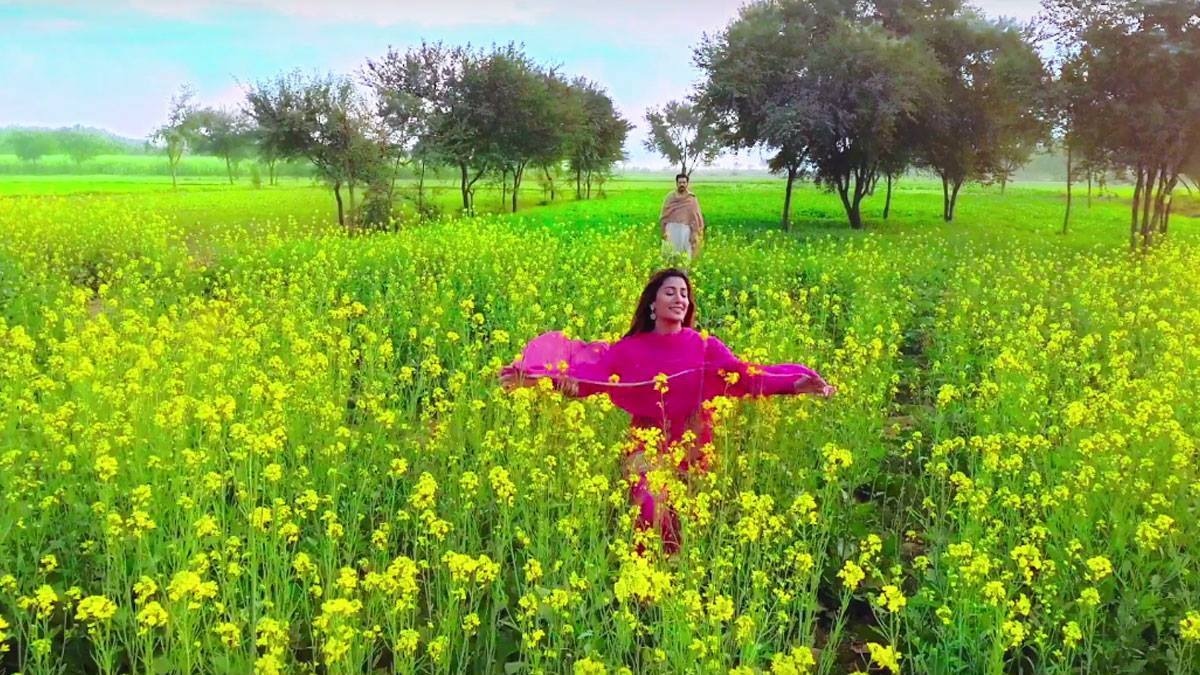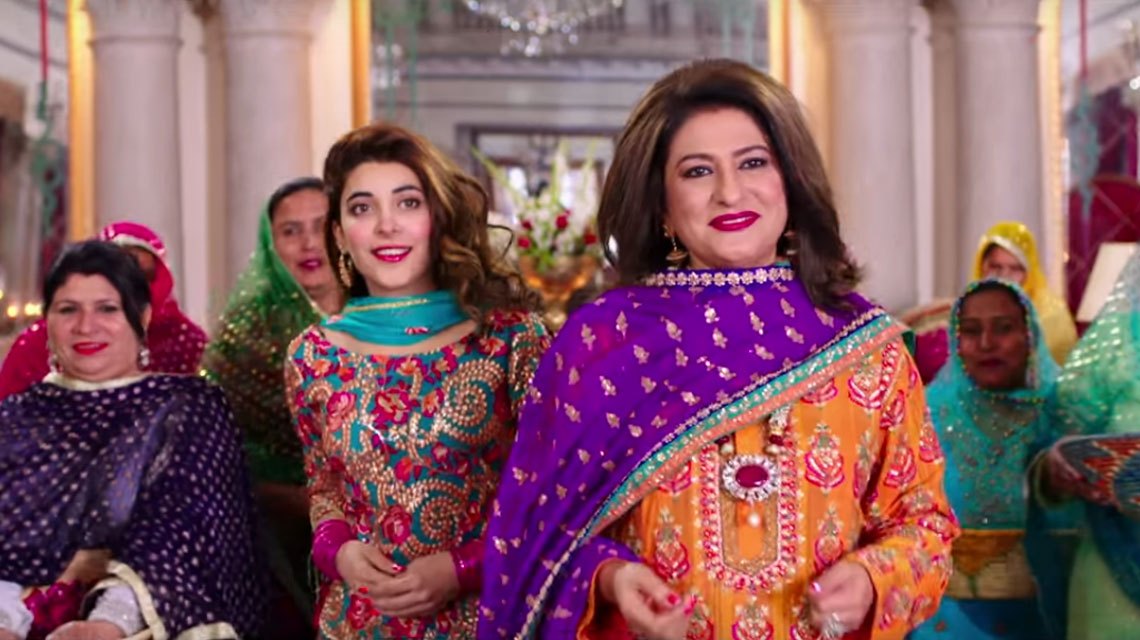Punjab Nahi Jaungi Review: 'Paisa vusool' despite storyline glitches

The famed revival of Pakistani cinema continues with Humayun Saeed at the helm. Photo: Punjab Nahi Jaungi's Facebook Page
By Mahwash Ajaz
Nothing resonates with a large audience like an inside joke. It’s ironic but it’s true. And the entertainment industry works curiously like so: the bigger the irony of a situation, the more numbers it will pull. The more conflict a story has, the thicker is the breath stuck in your throat. In Punjab Nahi Jaungi, the story is rife in contrasts and the gigantic flamboyant jamboree that surrounds this contrast is what makes PNJ a success.
The cast helps. Mehwish Hayat has proven time again that she’s made for the silver screen, she shines in dull scenes and some plainish dialogs and looks beautiful as she runs through the fields, dances in the rain and yes, starts running a dairy farm in the heart of Punjab. Acting is impeccable. Humayoun Saeed makes a super problematic character like Fawad Khagga likeable and heroic – which is great for Punjab Nahi Jaungi but definitely makes us wish he had been more of Muhid from Dillagi, a gentler, kinder, civilized version of that inherently misogynist hero.

Photo: Screengrab
Humayun looks handsome as hell, the screen loves him like no other. Ahmed Ali Butt is underused and Azfar Rehman is over-used. Urwa Hocane sheds her good girl image (as recently seen in the hit drama serial, Udaari) and dons a saucy avatar for PNJ. She provides many excellent punchlines and becomes the heart of the now popular meme, “Help me, Durdana!”. The lavish lehengas and the embellished kurtas and the ornate shawls and bright colorful accessories fit perfectly within the narrative of the film. The music by Shiraz Uppal and Sahir Ali Bagga are responsible for half the magic. The songs, even though they feel a little too numerous in quantity, are melodious, emotive and dance worthy.
The film’s feel, the inside jokes, the heavily accented English, breathtaking cinematography, some fairly strong progressive storylines in Amal (Hayat)’s character make for a good paisa vusool but PNJ is not without problems. Most of them, fortunately, are not in the cinematic value or production quality, but in the storyline.

Photo: Screengrab
Smaller issues include the first half that seems to be going every which way and at times becomes slow and mopey. The second half was filled with many moments that could have easily been handled in a much better way. For example, during a spat between Amal and Fawad, Fawad slaps Amal and she walks out and heads back to Karachi. Good for her. But Khalil ur Rehman Qamar, a strong, talented writer, seemed to forget to address this behavior of Fawad Khagga. Perhaps it would have been better to have taken Faiza Iftikhar’s advice or even Umera Ahmed’s idea on how to tackle a hero who is problematic in such a way. In Iftikhar’s hit drama Dillagi that saw Hayat and Saeed together, Hayat’s character did have flaws but the storyline fared slightly better than PNJ. In Umera Ahmed’s Kankar, the wife (Sanam Baloch) leaves her abusive husband because we all know that unless someone’s really determined about changing, which let’s say Fawad Khagga was, it needs to be shown through a character’s growth. In PNJ, we see Khagga apologetic about almost cheating on Amal but not so much about hitting her. Nor do we see him understanding the concept of personal space, agency or individual choice. The lesson eventually becomes, hey, even if you hit your wife, it’s okay, because just show how persistent you are and she’ll buckle. Instead of showing some sort of a plausible path of redemption that could have resonated with the average joe (or average Javed, in Pakistan’s case) or helped them see the deliberate misogyny in their culture and their actions, Khagga is seen giving a lecture about how being divorced hurts. This becomes a weak climax for a high-powered film.

Photo: Screengrab
There’s blatant product placement (fast food chains, banks, they’re all starring in the film) and somewhat of a whitewash of Khagga’s abusive nature, but there is also a strong female lead who doesn’t relent and knows what’s right for her and there is some heart in the love story when it talks about ‘maarfat’ and ‘ishq’.
Final verdict stands at 3.5/5. For its tawdry finery, danceable songs, relatable comedy and the visual treat that is Pakistan’s landscape, this is still a pretty paisa vusool time pass and it is strongly suggested you watch it.
Punjab Nahi Jaungi - Review by Mahwash Ajaz

